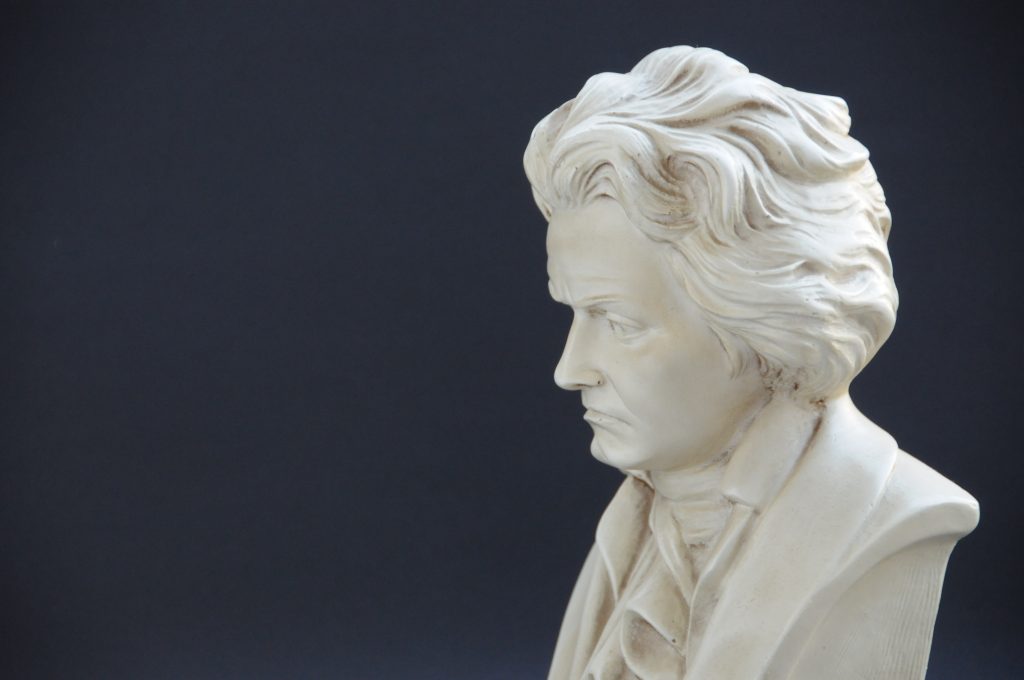
Beethoven’s Health Struggles: A Musical Triumph
Beethoven’s Struggle with Illnesses
Ludwig van Beethoven, renowned as one of the greatest composers in history, left behind a legacy of breathtaking music that has touched the hearts of millions. However, behind his musical genius lay a life filled with personal challenges, including a constant battle with various illnesses. In this article, we will delve into the health struggles that Beethoven faced throughout his life, shedding light on how these ailments influenced both his music and his daily existence.
Early Health Challenges
Beethoven’s health struggles began early in his life. As a child, he faced the loss of his mother to tuberculosis, a disease that would later cast a shadow over his own life. He also suffered from various childhood illnesses, which may have weakened his constitution.
It is believed that Beethoven’s hearing difficulties, which would eventually lead to profound deafness, had roots in his early years. The exact cause of his hearing loss remains a subject of debate among scholars, with theories ranging from genetic predisposition to illnesses he contracted as a child.
The Mysterious Stomach Ailment
One of the most perplexing health issues Beethoven faced was a recurring stomach ailment. He suffered from chronic abdominal pain, diarrhea, and digestive problems that plagued him for much of his life. The exact nature of this ailment remains a subject of speculation.
Some historians and medical experts have proposed various theories, including irritable bowel syndrome (IBS) or lead poisoning. Beethoven’s fondness for wine and the lead-lined wine casks of the time have led to speculation about lead exposure contributing to his health problems. However, conclusive evidence remains elusive.
The Onset of Deafness
Perhaps the most well-documented of Beethoven’s health struggles was his progressive deafness. The composer began experiencing hearing loss in his late twenties, and this condition would worsen over time, eventually leading to near-total deafness.
Beethoven’s deafness had a profound impact on his life and music. He famously composed some of his most remarkable works, including the Ninth Symphony and the late string quartets, while he was completely deaf. He communicated with others through conversation books, in which people would write their questions and comments, and Beethoven would respond in writing.
The Emotional Toll
Beethoven’s health challenges took a significant emotional toll on him. His hearing loss, in particular, caused immense frustration and despair. In one of his famous Heiligenstadt Testament, he wrote about his struggles with deafness and contemplated ending his life. However, he found the strength to continue his musical journey despite these hardships.
His music became an outlet for his emotions and a testament to his resilience. Beethoven’s compositions from this period are marked by their depth and intensity, reflecting the inner turmoil he experienced. His ability to convey complex emotions through his music is a testament to his genius and his ability to transcend his personal struggles.
The Role of Music in Healing
Ironically, music itself played a therapeutic role in Beethoven’s life. While he grappled with health issues and personal challenges, composing and performing music provided him solace and purpose.
Beethoven’s music became a source of inspiration not only for himself but for generations of musicians and music enthusiasts. His compositions, ranging from symphonies to piano sonatas, are celebrated for their emotional depth and power to move listeners. They serve as a testament to the healing and transformative power of art.
Medical Treatments and Remedies
Throughout his life, Beethoven sought various medical treatments and remedies in an attempt to alleviate his ailments. In an era when medical knowledge was far less advanced than it is today, his treatments included everything from herbal remedies to questionable therapies.
It’s important to note that some of the treatments Beethoven underwent may have had adverse effects on his health. For example, the use of lead-based medications, which were common at the time, could potentially have exacerbated his stomach issues and contributed to his overall health decline.
The Final Years
In his later years, Beethoven’s health continued to deteriorate. His deafness had become profound, and he faced numerous physical challenges. Despite his ailments, he remained dedicated to his music and continued to compose.
One of his notable compositions from this period is the “Late Quartets,” a collection of string quartets that are considered some of his most profound and experimental works. These compositions are marked by their complexity and emotional depth, reflecting Beethoven’s unwavering commitment to his art.
Beethoven’s Lasting Impact
Despite his health challenges and personal struggles, Beethoven’s legacy endures. His music continues to be celebrated and cherished by people around the world. His compositions, which span a wide range of emotions, remain a testament to the human spirit’s ability to triumph over adversity.
Beethoven’s ability to channel his pain, frustration, and despair into his music is a source of inspiration for artists and audiences alike. His music transcends time and language, offering solace and inspiration to those who listen.
Conclusion
Ludwig van Beethoven’s life was marked by relentless physical and emotional challenges. His struggle with illnesses, particularly his progressive deafness, could have easily silenced a lesser spirit. However, Beethoven’s indomitable will, his commitment to his art, and his ability to find solace and expression in music are a testament to the power of the human spirit.
As we reflect on Beethoven’s life and the challenges he faced, we gain a deeper appreciation for the man behind the music. His ability to create beauty from adversity and to leave a lasting legacy through his compositions serves as an enduring source of inspiration for us all.